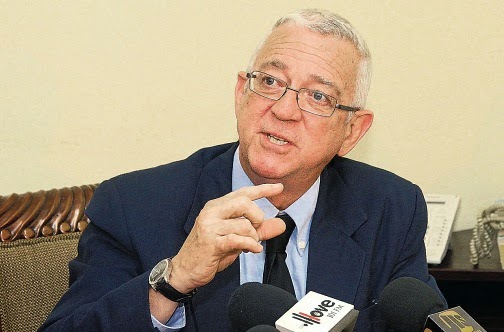It wasn’t too long ago that the Minister of Education announced
that there will be no hiring of ‘new’ teachers. While I struggle understand
what the Minister meant by the word ‘new,’ I noticed that enrollment of new
students at our teachers’ colleges has decreased significantly. When I was
accepted into college, the number of students who came to do interview was over
200. The consecutive batch was about that number; however, only about 80
students actually enrolled and if one should do the math, that is a 60 per cent
decrease in enrollment. The decrease came was after the Minister made the
announcement. I am wondering if teaching is slowly meeting its demise.
Whatever the case may be, teaching has lost its value and
quality. The perception that is embedded in the now status quo, is that
teaching is a last resort. In recent times, teaching has been battered by the
system. If my memory serves correctly, I think there has been a wage freeze
since 2009. The pay isn’t that attractive. In Finland, teachers are paid and
seen in the same light as doctors and lawyers. They have access to world class resources
which is used to enhanced teaching and learning. But if teachers are to be paid
like doctors and lawyers, would that mean that the entry requirement for
teachers has to increase along with the period of study? Is it the amount of
CAPE or CSEC you have which makes you a good lawyer or doctor?
Then there is the suggestion that teachers should be paid by
performance. Why? Is the Cabinet Ministers being paid by performance? It does
not take rocket science to know that this performance pay system is unfeasible.
What would be used to measure performance? In light of teaching and learning,
what does Lev Vygotsky, Jean Piaget, and other theorists has to say? The many
factors that affect the teaching and learning process, how does that factor in?
Those who are oblivious of what takes place in the teaching and learning
process should keep quiet. Knowledge should inform policies and not the lack
thereof. A scientist will tell you that in order to measure both qualitative
and quantitative outcomes of an experiment, there has to be a control group
which is exposed to same conditions as the subject being measured. Even a
simple mathematics topic like measurement shows why it is impractical.
Finally there is the notion of failing teachers, and it is
such notion that caused the performance pay system to awaken. When a school
receives students in which over 60 per cent of the students’ averages are below
50 per cent, which some cannot read, what are the teachers to do?
Non-traditional high schools receive the ‘what left’ of the system and those in
their ignorance ready to criticize the teachers and the schools oblivious of
the fact that the problem is not with the high schools but primary schools. No
student should be enrolled in high school and cannot read; that’s rubbish! If
the foundation is not set properly it is almost impossible to get the building
process correct. Can you build a house on sand and expect that when rain fall
it won’t sink? Teaching is meeting its demise and no impractical policy or
cliché notions won’t help.



















